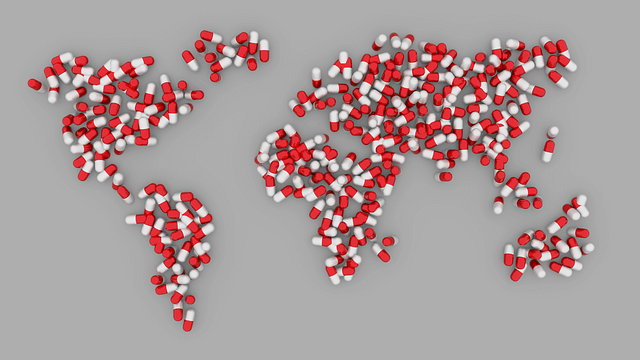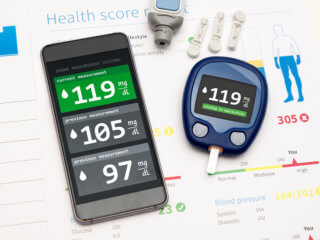Clinical studies have long been an integral part of the drug discovery process. Once the chemical is tested and finalized, it is finally put on real trial: animals and humans. The entire process takes years to complete and taxes to boot. In the century of big data and analytics, is it possible to use an alternative to replace clinical studies? Big data in the digital health sector is going to be the next big thing.
Presently, clinical trials are the only one considered to be the real arbiters of truth in pharmacy and medicine. All others are taken with a pinch of salt. Why? Because the other studies are often faulted for being biased and prejudiced to learn often towards what one wants to see, which might hamper patients’ lives later on. Thus, clinical trials have slowly become the most expensive and critical part of drug development process.
Clinical trials may range up to ten thousands patients with various disorders representing the steel rule of medical science. But what if all the research questions are answered using data from thousands, even millions of patients?
The concept of big data is concerned with handling massive amounts of information which can be analyzed to provide an overview of trends and patterns which offer useful insight capable of transforming health care and revolutionize how patients get care, diagnosed and appropriately treated.
Various initiatives are taken to incorporate Big Data into medical science. In 2012, National Institute of Health (NIH) started Big Data to Knowledge (BD2K), an effort to promote research and development of tools and approaches that would accelerate the use of big data in biomedical research. IBM Watson Health and the Watson Health Cloud platform were launched by IBM to analyze and extract massive amounts of health data from structured and unstructured medical systems.
| Recommended for you | |
| AI to predict population health risks | |
| AI helps in drug discovery process | |
| Big data in medicine |
What is big data?
Before we proceed, let’s ask us, what is big data?
Technically, big data refers to data collected from multiple internal and external sources that are too broad and complex for traditional analytics to handle. Technological innovations, algorithms, analytical models encode and generate within themselves massive surge of data. Big Data can be characterized by 4 V’s:
- Volume: the scale of data.
- Velocity: the rate of data flow.
- Veracity: accuracy and certainty of data.
- Variety: type of data, structured or unstructured.
The advent of EMR (Electronic Medical Records) and advanced computing make it possible to collect an immense amount of information and extract the useful ones. What prompted the idea of “Big Data”? According to Center for Disease Control and Prevention, 78.4% of physicians were already using EMR in some form. As the systems multiply, more data can be collected. Whether data is genomic or clinical, it can act as a support tool to the physicians by statistical analysis and pave out the best preventive method for treatment of diagnosis.
David W Bates, MD, MSc, identifies five sectors where big data could be of great help:
- High-cost patients
- Triage
- Readmissions
- Decompensation
- Treatment optimization
- Unfavorable event
Big data analysis can contribute to predicting whether a patient will be readmitted, or if there is a possibility of the unseen event which can prove to be dangerous. Big data can be used as a rationale for payments or prior authorization from investors and players. It can also help the introduction of “health coin.”
De Vries claims, “We need to take an incrementalist approach for this to work.One example: drugs for heart failure, muscular dystrophy, and neurodegenerative disorders are currently tested based on how far patients can walk in a set amount of time. But that’s an artificial measure, which happens only in a doctors’ office. Why not, De Vries says, equip people with Nike Fuel bands or FitBits that track how much they move?”A single healthcare platform simplifies IT and lowers total cost of operation.
Another exciting endeavor by Max Friend, from MIT Media Labs, came up with a new way to diagnose Parkinson’s disease using voice changes, tremor, and quality.
What are the biggest challenges to big data approach?
- Health Insurance Portability and Accountability Act (HIPAA): HIPAA restricts how data is shared. It’s patient’s choice what to share, and this might affect data gathering on payer’s and insurer’s side.
- Edifice Complex: According to Jonathan Bush, Head, and director of Athena Health, “the orientation around systems is around billing and on referring stuff into the hospital.” So instead of expensive centralized system, one needs to make provisions for data extraction from nearest place you took health advice.
- Those systems cannot analyze patient-related data in real time and deliver it quickly to caregivers and decision makers.
- Legacy systems block companies from providing insights across multiple channels.
Now, let’s look at the present market scenario for the applications of big data
Market size of big data
Big Data is said to play a significant role in a major win for Obama during US elections. It helps explore underlying mechanisms of different phenomena and facilitates decision making.
“Most of the data systems are for billing, and they aren’t used to improve the quality of care,” explains Jason Jones, executive director of clinical intelligence and decision support at Kaiser Permanente, a health care provider and not-for-profit health plan that serves approximately 9.1 Million members in eight states and the District of Columbia. Inventing new healthcare practices is as needed for a much lower cost of care.
“Integrating data across all of the providers that patients might choose is a critical capability”, says Memorial Care’s Exley.
Various firms have taken an active interest in data mining and analysis for the health sector. Following are the contributors or sponsors of big data analysis
- Athena Health, a provider of cloud-based electronic medical records; the company has a market capitalization of $4.8 billion and revenues of $539 million.
- Medidata, also cloud-based, provides clinical trial databases to drug companies and helps pharmaceutical firms control their research costs and manage their research productivity.
- Genentech
- SAGE Bionetworks uses network-based biology and data submitted by patients themselves to figure out new ways of developing drugs and other therapeutics.
- High-Value Healthcare Collaborative (HVHC), a collaboration of 70,000 physicians and 7 million patients across the U.S.
It’s perfect time Big Data is adopted and integrated into our healthcare systems which can help us make a better diagnosis, increase life expectancy and quality of the human race, and also maximizes patient satisfaction to the fullest. Big Data carves a new future for the medicine.
Image credit: www.istockphoto.com

















